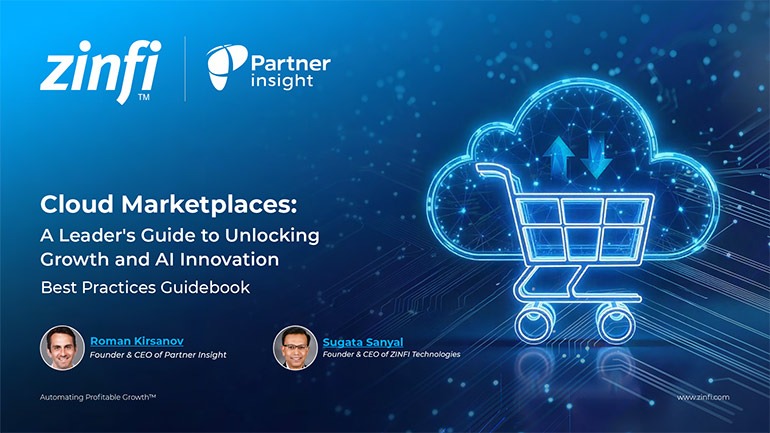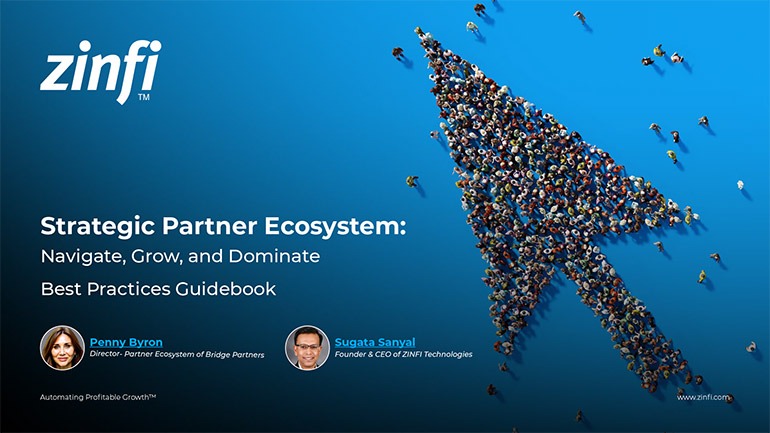Glossary - What is - Partner Portal Automation
What is Partner Portal Automation?
Partner Portal Automation refers to using technology to streamline and automate various processes within a partner portal. A partner portal is a digital platform that organizations use to manage and support their relationships with business partners. Automation in this context involves leveraging software tools to perform repetitive tasks, manage data, and facilitate communication between the organization and its partners without manual intervention.
Partner Portal Automation plays a crucial role in partner ecosystem management and partner management automation. It helps organizations efficiently manage their partner networks by automating onboarding, training, performance tracking, and compliance management workflows. This leads to a more seamless and productive partnership experience. Automated partner portals provide real-time insights and analytics, enabling better decision-making and strategic planning.
Key Takeaways:
- Streamlined Onboarding: Partner Portal Automation simplifies the onboarding process for new partners. Automated workflows guide partners through the necessary steps, from signing agreements to completing training modules. This ensures consistency and reduces the time and effort required for the organization and the partner. For more information, visit ZINFI’s Onboarding page.
- Enhanced Training and Certification: Automated partner portals offer comprehensive training and certification programs. Partners can access training materials, complete assessments, and receive certifications through the portal. Automation ensures that training content is consistently updated and available, improving partner knowledge and performance.
- Efficient Communication and Collaboration: Partner Portal Automation facilitates seamless communication and collaboration between organizations and their partners. Automated notifications, alerts, and updates inform partners about important events, deadlines, and opportunities. This improves engagement and fosters a collaborative environment. Check out ZINFI’s partner communications capabilities.
- Performance Tracking and Reporting: Automated portals provide real-time tracking and reporting of partner performance metrics. Organizations can monitor sales, leads, and other Key Performance Indicators (KPIs) through dashboards and reports. This data-driven approach allows for more informed decision-making and strategic adjustments.
- Compliance and Security: Compliance with regulations and data security are critical aspects of partner management. Automated portals can enforce compliance requirements and manage security protocols automatically, reducing the risk of errors and breaches. This builds trust and reliability within the partner ecosystem.
Summary of Key Takeaways:
Partner Portal Automation benefits organizations and their partners by streamlining onboarding, enhancing training, improving communication, providing performance insights, and ensuring compliance. These automated systems lead to more efficient operations, better partner engagement, and, ultimately, more successful partnerships. By leveraging the capabilities of computerized portals, organizations can focus on strategic growth and development while maintaining robust partner relationships.
Key Examples:
- Automotive Manufacturing: Partner Portal Automation helps manage complex supply chains by automating communication and coordination with suppliers in the automotive manufacturing industry. This ensures timely delivery of components and adherence to quality standards. Automated training programs keep suppliers up-to-date with the latest manufacturing practices and compliance requirements.
- Consumer Electronics: For consumer electronics companies, automated partner portals streamline the onboarding of retail partners and distributors. These portals provide real-time inventory updates, promotional materials, and sales performance reports, enabling partners to make informed decisions and enhance their sales efforts.
- Energy Production: In energy production, Partner Portal Automation facilitates the management of partnerships with equipment suppliers, contractors, and regulatory bodies. Automated compliance tracking ensures adherence to safety and environmental standards, while performance dashboards monitor project progress and efficiency.
- Financial Services: Financial services firms use automated portals to manage relationships with brokers, advisors, and third-party service providers. These portals automate the dissemination of regulatory updates, training programs, and performance metrics, ensuring compliance and improving service quality.
- Food and Beverage: The food and beverage industry benefits from automated partner portals by streamlining supplier management and ensuring health and safety regulations compliance. Automated inventory level tracking and order processing enhance supply chain efficiency and reduce operational costs.
- Healthcare Services: In healthcare services, Partner Portal Automation supports the management of relationships with medical equipment suppliers, pharmaceutical companies, and insurance providers. Automated portals ensure compliance with healthcare regulations, streamline communication and provide training on the latest medical practices.
- Information Technology: IT companies leverage automated partner portals to manage relationships with software resellers, system integrators, and technology consultants. These portals provide automated training, certification, and performance tracking, enabling partners to deliver better service to end customers.
- Pharmaceutical Development: Pharmaceutical companies use automated portals to manage clinical trial partners, regulatory agencies, and distribution networks. These portals automate compliance tracking, training, and performance reporting, ensuring pharmaceutical products’ efficient and compliant delivery.
- Retail Industry: Retailers use automated partner portals to manage relationships with suppliers, distributors, and franchisees. These portals provide real-time inventory updates, sales performance metrics, and promotional materials, enhancing collaboration and driving sales growth.
- Telecommunications: Partner Portal Automation helps manage partnerships with service providers, equipment manufacturers, and regulatory bodies. Automated portals streamline the onboarding process, provide training and certification, and ensure compliance with industry standards.
Conclusion:
Partner Portal Automation is a powerful tool that transforms organizations’ management of their partner ecosystems. Organizations can achieve greater efficiency, consistency, and strategic alignment by automating key processes such as onboarding, training, communication, performance tracking, and compliance. Each industry vertical, from automotive manufacturing to telecommunications, benefits uniquely from the automation of partner portals. These portals improve operational efficiency and enhance partner engagement and satisfaction. As organizations expand their partner networks, adopting automated portals will become increasingly crucial for maintaining competitive advantage and driving growth. By leveraging advanced automation technologies, organizations can ensure that their partner management processes are scalable, secure, and practical, ultimately leading to more robust and productive partnerships.
Associated Keywords:
- Partner Ecosystem Management
- Partner Management Automation
- Automated Partner Portal
















